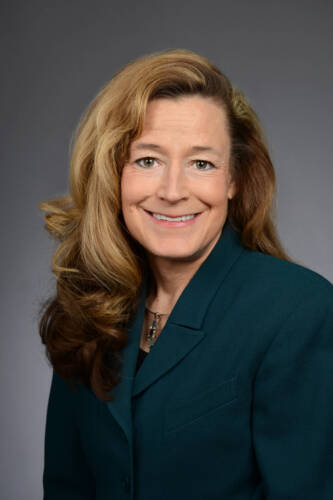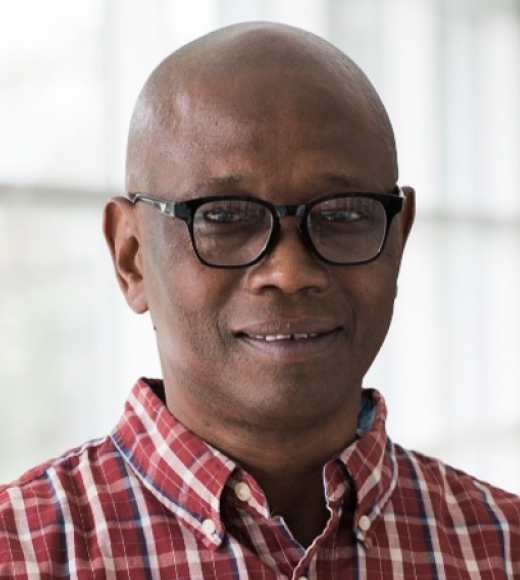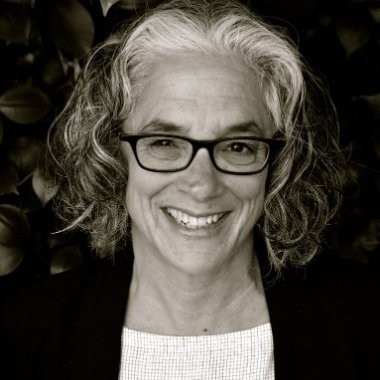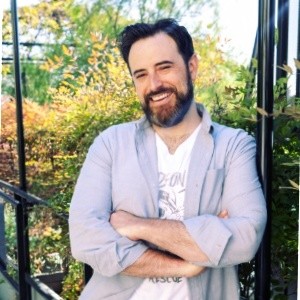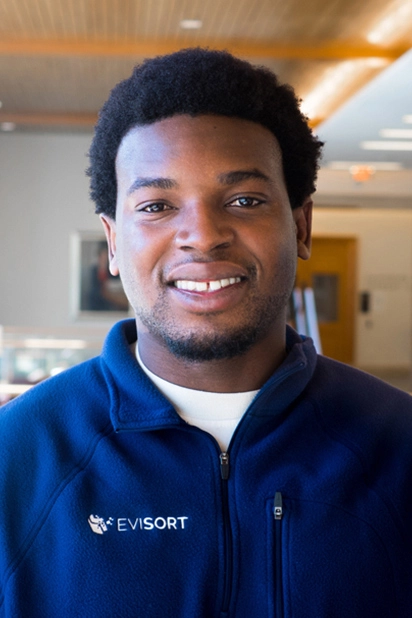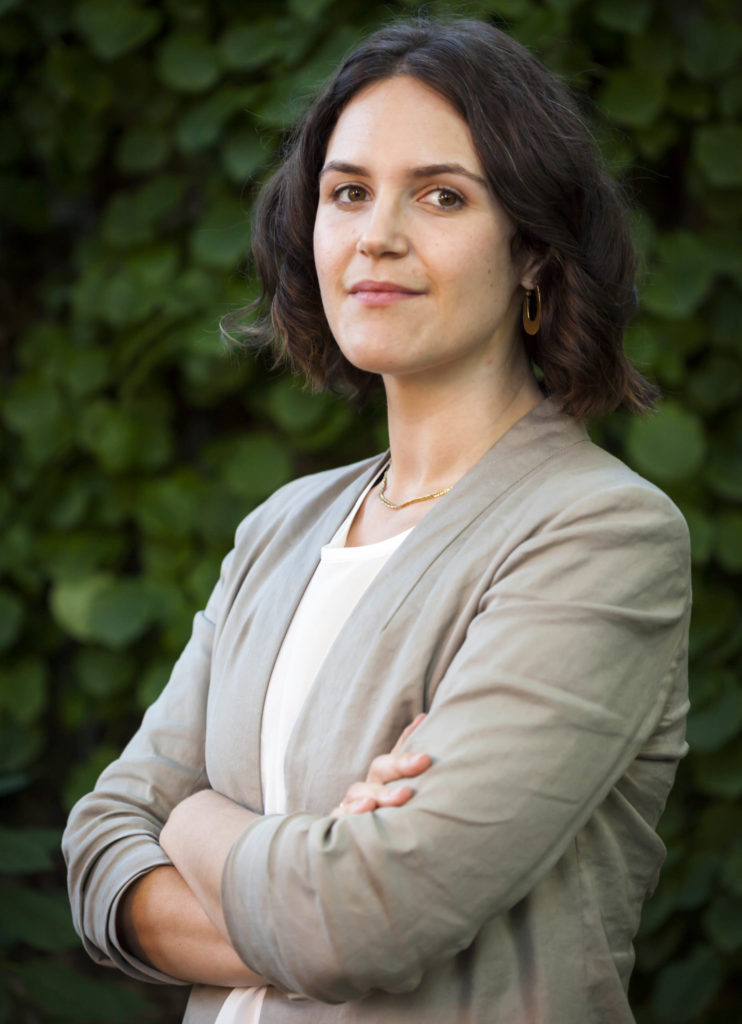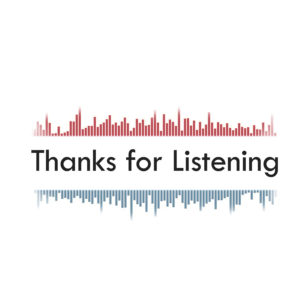
Welcome to the ninth episode of our podcast, Thanks for Listening!
On May 25th, George Floyd was killed by a Minneapolis police officer who pinned Mr. Floyd to the ground, a knee on his neck, for 8 minutes and 46 seconds. His death sparked widespread protests demanding justice and the dismantling of structural racism in the US. At the same time as the nation in some ways fell into the familiar grooves of division, there was also a palpable sense of new and different energy around Black Lives Matter as a movement, both in calls for action and also an eagerness for learning and reflection about racism in America. This episode explores efforts to bridge divides around racial justice and asks some fundamental questions about the nature of dialogue in this moment. What exactly is the dialogue that needs to be had on race and racism? Is this a time for some to speak and others to listen? Do we need everyone’s voice? And if so, how can we draw all those voices in?
Our guest, Liz Joyner of The Village Square, has been wrestling with these very questions. She shares her experience and perspective borne of fifteen years helping people engage across their differences, not by helping people agree, but by helping them to disagree, and keep talking anyway. She describes ongoing and upcoming initiatives from The Village Square to convene difficult conversations about race—and how even well-intentioned conversations all too often devolve into a toxic “us vs. them” dynamic, what she calls “the woodchipper of partisanship.”
![]()
Thanks for Listening is a podcast tracking efforts to bridge the political divide in the U.S. through dialogue and collaborative processes and spotlighting the important and often courageous work of individuals and organizations who are helping citizens engage with one another on challenging topics. We hope that through the everyday examples of ordinary and extraordinary people all over the country, listeners will find optimism that we can—and are—moving beyond partisan divides, as well as inspiration to become part of the solution. This podcast is made possible with a grant from the American Arbitration Association International Centre for Dispute Resolution Foundation.
Hosts
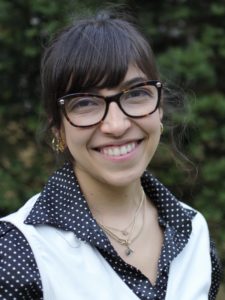
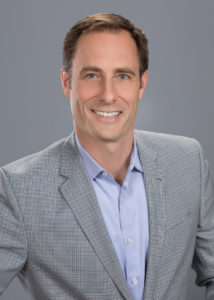
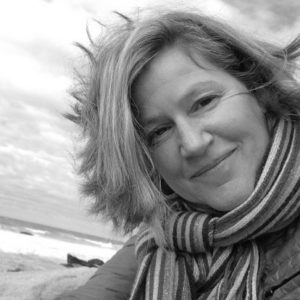
Sara del Nido Budish Neil McGaraghan Kate Ellis
Host Host Producer
Guest
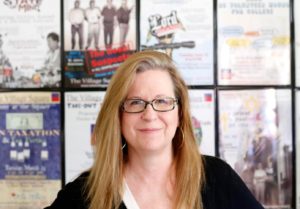
Liz Joyner is the executive director of the Village Square, a nonprofit dedicated to reviving civic connections across divisions inside American communities. Liz conceptualized the Village Square after her experience working in politics convinced her that the way we work out our disagreements in today’s public square is fundamentally flawed. She was nominated by Leadership Tallahassee as Leader of the Year in 2010, named by the Tallahassee Democrat as one of “25 Women You Need to Know” in 2015, by the Girls Scouts as a “Woman of Distinction” in 2016 and was honored by United Church Women as a Woman of Peace. David Blankenhorn of the Institute for American Values called Joyner “likely the best organizer working in this area today.” Liz has a master’s degree in social work, is a Knight Foundation Fellow, and is a participant in the 2015 Conclave on Political Polarization.
Named by retired U.S. Senator Olympia Snowe as one of eight organizations to support if you’re concerned about the deepening partisan divide, the Village Square has received support from the John S. and James L. Knight Foundation, the Reid Hoffman Foundation, and was the recipient of the 2015 Statewide Impact Award from Leadership Florida—recognizing an organization that has created a body of work that can impact Florida as a whole.
Resources
The Village Square
The Village Square “Equality in Life” Event
The Village Square: The Longest Table
Respect + Rebellion
Transcript
Sara del Nido Budish [00:00:10] From the Harvard Negotiation and Mediation Clinical Program, I’m Sara Del Nido Budish.
Neil McGaraghan [00:00:14] I’m Neil McGaraghan, and this is Thanks for Listening, a podcast about bridging the partisan divide in America. At the taping of this episode, it has been nearly two months since police in Minneapolis killed George Floyd, an officer pinning him to the ground with a knee on his neck for eight minutes and forty-six seconds. Those two months have seen protests on a huge scale in cities all over the country and all over the world sparked by Mr. Floyd’s death and the killings of other Black people by the police, and calling attention to and demanding a dismantling of the embedded structural racism within institutions like the police and society more broadly.
Sara [00:00:48] A Pew research study found in June that two thirds of Americans support the Black Lives Matter movement. And yet the nation was also drawn into the familiar groove of partisanship and division. Choose a side. Cast your lot. Are you for Black Lives Matter or are you for law and order? Are you a racist or a lawless thug? If you’re not with us, you’re against us.
Neil [00:01:08] To many people, of course, the protests have been an outlet to express years of built up anger, pain, anguish, indignity, and the time for dialogue feels long past. Now is the time instead for decisive action and meaningful change. And even to people who are urgently calling for action and feeling fed up with talk. This feels like a critically important moment for real learning and reflection about what it means to be white in America or to be Black or a person of color. About what it means to live in a fundamentally racist society or to acknowledge structural racism, let alone to dismantle it.
Sara [00:01:39] This episode explores what it could look like to try and bridge divides around racial justice. To do that, we engage some fundamental questions about the nature of dialogue. If there is a place for dialogue, what exactly is the dialogue that needs to be had? In what ways do these conversations need to look and feel different than they have in the past? Who are these conversations for? How have some approaches to dialogue, in fact, asked very different things of the white people and the people of color at the table. Where are we tripping up in our dialogues about racism even with good intentions and a desire for change.
Neil [00:02:12] Liz Joyner, a co-founder of the Tallahassee, Florida based organization The Village Square, has been tackling these and other questions in the current climate and for 15 years, as the village square has pursued its mission to promote real democracy by bringing people face to face to discuss difficult issues. Not to agree, as they quickly point out, but to disagree and to keep talking anyway. On today’s episode, we talk with Liz about her organization’s experience helping people build connections and relationships across vastly different political views. And she shares with us her experience grappling with significant barriers to having those conversations and even so, why we need to keep having them.
Sara [00:02:51] Neil and I are super excited for this conversation, so, Liz, thank you so much for joining us.
Liz Joyner [00:02:55] It’s great to be with you.
Sara [00:02:57] So to kick off, I kind of want to situate us in this moment in time, which is a unique moment, of course. So when we think about The Village Square as a concept, I feel like that concept has undergone a lot of evolution even in the past few months. Right. So for one thing, we’re in the middle of a pandemic that has forced us out of The Village Square, dispersed The Village Square, and we’re sort of all in the midst of trying to recreate that virtually. And then on top of that, in the past month or so, there’s been this huge crescendo in public protest around racial justice. And people have physically, literally, come back to The Village Square to come together. And so I’m curious to hear first, just what has the past couple of months been like for you? What has it been like for the village square? Can you give us a sense of what things have looked like and felt like for you and the folks that you connect with?
Liz [00:03:56] I would characterize it as both a time of incredible upheaval and opportunity. And in terms of the upheaval, obviously you know, the work that we do, we feel very deeply about the importance of people gathering in person. We believe that actually really changes everything and that a lot of the problems that we’re having now are that we are relating more and more digitally rather than face to face with people who are, you know, who are partners in governing and in American democracy and who might disagree with us or have different life experiences. So it’s quite the thing to be in the midst of so much change and challenge at a time when we can’t gather personally. So for me, that’s very personally hard. And so, you know, we’ve worked really hard to kind of stay with stay with the moment as best we can in having conversations, continuing conversations, that are kind of long occurring, but also starting new ones. So we’re adapting like everybody else is to what The Village Square and the public square is today. And, you know, I guess the other thing I wanted to say about thinking about the public square and the town square and the village square, that basic concept, it’s such a fundamental concept in our democracy. And I think maybe we don’t put ourselves there enough, you know, in the hometowns we share with the citizens that we share the hometowns with. And so in a lot of ways, it can be a really healthy thing that we’re returning back to it.
Neil [00:05:40] Well, super healthy to be turning back to it, but also, I think it’s fair to say, super challenging in some ways, too. And I’m curious to hear your perspective on and I guess your experience with what it’s like to actually get people into the public square. I think it would be really helpful and interesting to hear about what the challenges are in making that happen.
Liz [00:06:00] It’s interesting that one would think at a time when we disagree so thoroughly and completely on so many things it would seem that the point of disagreements are kind of the rub and the hardest part. But our experience has really been that the hardest part is getting people into the conversation, getting the diverse voices into the conversation, you know, whether that’s in person or digitally, as we have to do right now. We’ve, you know, experienced an extraordinary sort of siloing of the different parts of our civic lifeblood where it’s gotten a lot easier to get group-ish digitally. And I mean, just a punch of the button and you’re right there with the folks who have the same life experience that you do and agree with you. And the problem is that you also have to have a space where you have a healthy place that you disagree, and that that is foundationally part of what we ought to be doing as well. So it really is the biggest challenge now to us, and really to, in my mind, to, you know, achieving solutions to the problems that face us are being willing to put ourselves in an ongoing, you know, somewhat uncomfortable relationship with people we disagree with. So that really, you know, to us is by far the biggest challenge right now. And of course, as the temperature rises on, you know, our public conversations that actually becomes more difficult.
Neil [00:07:43] So maybe then, I mean I guess a logical next question is, so how have you actually gone about doing it? And you do have this long experience, fifteen years, that maybe feels a little bit different to be in the moment we’re in now, but I imagine also is informed a lot by what your experience has been over the years. So what is the, I don’t know, the key that you all have found or some of the keys that you have found to actually getting people to come to the table?
Liz [00:08:06] Well, for us foundationally, and this really is part of our origin story, is that you have to either start with or create relationships that really are across divisions. So it doesn’t work very well if you have a very well-meaning group of people who have the same life experience and the same ideologies who are trying to reach out and create this conversation. There really has to be significant diversity in sort of the core central group of people who are trying to drive something forward. And, you know, there are a million different reasons for that. One is that you kind of have to check each other’s biases and they’re called blind spots for a reason. Right. And if you I mean, there’s been a number of times over the years that someone who has a different ideology or viewpoint than I have will say, “Whoa, wait a minute. Are you sure that you’re seeing that the right way?” And so that kind of push and pull needs to exist at a very intimate level to be able to move out into a public square that’s very divided. So we maybe one day I’ll think of a better name for this, but for right now, we’re calling that a core catalyst model. So, and if you think about it almost as the rings of a tree, if you cut a tree, you know, across you see the years of growth. So if you start in the very center and you’re wanting to build out this big, strong, powerful metaphorical tree, then you start with the kind of relationships that you want to grow out. And then you grow from there. And so it’s part of our origin story because we kind of accidentally stumbled into this concept by virtue of the fact that, you know, when we started The Village Square, it was because I was inspired by a group of local leaders who disagreed very strongly on a real controversial local issue. And they were able to still have the wonderful conversations that I think were enlightening. It helped us see the whole problem as it was by virtue of the fact that they had really solid relationships. So a solid core of relationships is absolutely critical. And then you grow from there. You know, another basic idea I would say that is really important is that, you know, in the moment we’re in, obviously there are a lot of people who are going to want to start a lot of things, but it is really important to consider what you’re doing, something that has to be, you know, fed and maintained. It has to, I describe it as a civic muscle. So that you want to be regularly practicing that and probably in no other space more so than conversations on race. That’s really critical because, you know, if you’re having difficult conversations regularly around topics that are hard to discuss, then, you know, you can do it when it gets more emotional. So, you know, think of it as something that it has to be an ongoing thing. It’s not like you can sit down at a table one time and all of a sudden, boom, boom, boom, you’ve got this list of policy agreements. The relationships have to exist at a foundational level for the other things to be able to be brought in on top of them.
Sara [00:11:47] If you can just kind of make this concrete for us. So you’ve managed to get a mix of people in the room. What do Village Square events look like and feel like? How do you go about having these conversations?
Liz [00:12:01] Well, one of the things that’s somewhat distinctive about what we do, and it does feel like it’s important and powerful and maybe just slightly different than what is often done is that our events feel very much like a social gathering, almost kind of a civic club. And I use that word probably asking forgiveness for it, because I don’t mean it’s exclusive. I just mean it has that sort of feel of, hey, we’re doing this thing together, we’re enjoying each other’s company and the “each other” in the room is a very, you know, diverse, varied group of people from the community. So the other thing that we started immediately and actually going back to that point to, even if what you’re doing is you’re having a policy discussion, you’re having a work group, you’re trying to make your way to the other side of an issue. One of the most critical things we’ve learned about human nature is that we make decisions intuitively rather than rationally. And so you want to set up an environment where people will be wanting to lean towards each other. So, you know, how can you create an environment in that group where you’re sort of sowing the seeds of people wanting to kind of lean towards each other even where they disagree? From the very beginning for us, that is also always having food. It’s an incredible way to humanize people without a lot of difficulty. So like our first program that we had all those years ago was on America’s Energy Future. And it was, as we call it, dinner at The Square. And it’s a series, you know, where we eat dinner first, we socialize first, and then we have the conversation. And that really is incredibly intentional. And so our events tend to, we work to have kind of a thread of it being a little bit irreverent, a little bit different, something that you want to be there on this evening to have this conversation. And so I think that, you know, to give people sort of a sense of this is a cool place to be, this is where I want to be and to make it just a little bit different. To laugh when it’s possible, you know, to think about things that maybe sometimes you don’t normally think about at sort of the standard civic event. And in our experience has been that really does work. You need to till the soil. You know, if you want to plant the grass seeds you’ve got to have tilled soil. And one of the biggest problems we have right now in our society is that we’ve stopped doing that. We’ve sort of, we’ve stopped tending to that foundation. So we need to think about things in terms of relationships and ones that will last and the ones that will outlast, you know, this disagreement or that. Actually, one of the concepts that we talk about in terms of relationships that you’re wanting to build in this kind of endeavor is referred to as crosscutting relationships. So you might disagree vehemently on politics, but your kids are on the same softball team. And those enduring relationships that can withstand difference have to be rebuilt again for us to, you know, sort of save the public square and frankly, I’d argue the project of democracy.
Neil [00:15:50] Well, I mean, if I, and just to sort of think through that, if you and I are, you know, come face to face and I know nothing about you and I hear something that I disagree with deeply that’s one thing. But if you and I know each other well and I hear something I disagree with. I might be more inclined to say, well, look, I know Liz and Liz isn’t crazy, so maybe that idea is not as crazy as I once thought it was. I can actually get behind it ‘cause I know something about you as a person and I can empathize, I guess, with what you’re saying because I know you a little bit better and maybe respect where you’re coming from.
Liz [00:16:20] Yeah, yeah. I mean, that’s exactly right. And that’s how we humans roll. So, you know, if we don’t know you it becomes so easy to distill you to something two dimensional and something two dimensional that maybe is mis-representative of really who you are. I believe that in the whole decade and a half I’ve been doing this work, there hasn’t been a single person who I’ve come to know more intimately who didn’t make some level of sense based on what they knew, what their life experiences were and what they didn’t know, frankly. Right. Because, I mean, we’re living in an environment where you can now make your decision and then pick your facts. And in fact, that’s how our public square is working now, unfortunately, because it’s just so easy to do. And sometimes we don’t even really know that that’s what’s happening when we Google search something and it pulls up the results of the things that, you know, we click on more often that we’re more likely to agree on. So, yes, that’s exactly right. And relationships really have to exist at the foundation of efforts like this. And actually that sort of leads to another sort of broad learning that we’ve had over the years that I think isn’t really intuitive necessarily for folks, and that is that the public square for conservatives has it’s become harder for them to participate in ways that I think are making us less healthy and that, you know, we’ve learned over the years to be really thoughtful about making our events hospitable for conservatives to join in the conversation, too. Because if they’re not, then that means we’re, you know, we’re not they’re being impacted and influenced by each other. And we’re not seeing into each other’s blind spots in a way that can craft better ideas and solutions. And frankly, it also makes it easier for us to dislike each other.
Sara [00:18:31] So let’s bring some of these learnings and some of these, sort of, foundational kind of concepts to the initiative that you mentioned is just about to kick off in a few days around equality. Tell us about that sort of how it originated, particularly in light of these ideas about what’s important in terms of convening and the group that convenes these conversations. What was that like? How did this get kicked off? And what are your hopes for this initiative?
Liz [00:19:02] Well, it’s interesting. I’m actually going to answer by combining some learnings on a couple of initiatives because, in some ways, what we’re doing, the series we’re doing is a series of Zoom town halls on equality in the community, is kind of the fruit of what we’ve planted all these years in other projects. You know, I mentioned The Longest Table. We also have a program we do with Leon County government called Created Equal, and it’s near the anniversary of the MLK holiday. And we, then we also have a project that we started that’s more intimate called Local Color. And we started that after the Trayvon Martin tragedy. We started talking about how can we possibly make it so that in the midst of a race related crisis, the community can really gather around in, you know, diversity around race and opinion that we really can gather the community. And our observation was, even though that we were really used to having pretty major community events, depending on where you hosted the event and what the topic was, it would either be, you know, a very heavily white audience or a very heavily Black audience. And while we had relationships with both, you know, our goal was we really wanted to be able to build a diverse audience. And so those projects that I mentioned were sort of all came out of that. And Local Color was the most intimate. And the idea was we wanted to create this space where, really focusing on younger citizens, millennials and below, that we really wanted to create this really vibrant place where we’re really having conversations on race being very unvarnished about them. And again, sort of going after that civic muscle. So what we needed to do is we needed to keep talking about race, but we needed to keep that hard to engage conservative audience because, again, you know, it’s harder to step into the public square for some reasons we can either go into or not. So we wanted to keep that going. And then we wanted to, you know, have all of the different forums we have come together and make it highly racially diverse. And so in doing that, we’ve built these relationships that almost, you know, that then form the foundation for things like what we’re trying to accomplish in the Zoom series beginning next week. So we’re able to create a space where people feel like, you know, they trust that the conversation is going to be fair and honest and that, you know, that we keep faith with all the relationships we have. So, you know, we’re bringing in a pastor from a very important church in town. Actually, it will also include the attorney for the family of George Floyd, attorney Ben Crump. He is local. So we know him historically. It’s going to include that U.S. attorney, the state attorney, someone from the FBI, our sheriff, our police chief, our Tallahassee NAACP president and then the president and founder of the Neighborhood Association on the south side of town. And so that’s just an example of how if you stay in there with the relationships, if you work on them, if you hear people, if you see people, then you can gather that kind of group of people together to have, you know, what will be a challenging conversation. But the relationships exist that it will be, you know, we believe it will be a good one and constructive one.
Sara [00:23:17] I want to maybe push you a little bit to say more about what makes it so important to hold space for different views now, because there are a lot of, I think, calls for taking sides. For taking a stand. And I think, you know, even on this call, of course, our perspective is limited we have some variation in our perspectives I’m sure, but I think we would all characterize ourselves as well-meaning and liberal, I think, and also white or at least benefiting from white privilege. So that’s a lot of thoughts, but I guess this is a really complex problem, I think for dialogue right now. And so help me understand, help us all understand, a little bit more about kind of how you see the importance of getting that diverse group right now, including conservatives and sort of where we trip up on that.
Liz [00:24:14] So yes to everything you said. And, you know, one of the things that after the Charlottesville tragedy we did is we started working on a project inside Charlottesville about the idea of building conversations across divisions. And we did some real deep diving with some wonderful academics and thought leaders in the Black community and talking about, you know, how you do this. And there is no question that the sentiment was expressed very deeply that you just shared, which is wait a minute now is not the time. You know, now is not the time to harbor, you know, to listen to diverse perspectives. And now is the time for us to move. And, you know, as someone as not a person of color. I don’t think it’s fair for me to sort of reflect on that, because I think that there is a part of that that’s just legitimate and true. Right. And at a time like this, we all, I think, have to find a place that speaks to our heart and that makes sense to us. I think that the argument I would make and one of the things that we did as a part of the Charlottesville conversation is I was asked to reread Martin Luther King’s letter from Birmingham jail. And we talked about that. And I think that the point that the person who asked me to read it was making was what King does reflect all the way through. And that is, you know, we have had enough and we are losing patience and the fierce urgency of now. And I actually think one of the things that I’ve learned is that right now we just have to be good listeners and we have to be okay with the fact that we’re in different places right. One of the things that we’ve found in our in our work, again, I am liberal, have been liberal during my life, but I’ve spent 15 years stretching as we find people of incredible goodwill on the right side of the aisle, many of whom are very concerned about advancing racial justice. And so, you know, sometimes I think that when you stand on the other side and say, that’s it, if you’re not with me on this part, we’re done for. Then I think you miss a lot of the people that you would gather into your righteous cause if you didn’t do that. And this is a don’t try this at home thing because it’s an extreme example of the contact hypothesis principle. But I think it demonstrates how important it is to at least leave that space open. You know, maybe that’s not all of what you do for sure. But maybe it’s some of what you do. There is an inspiring story of Daryl Davis, a Black musician who set out years ago to bring people out of the Klan. And he did that by engaging them personally again. Don’t do this. I mean, you know, don’t expose yourself to risk and danger. But what a brave man. And he, you know, when you read accounts of what he did, you think, how can a human being have ever been willing to just sit there in a relationship where people said some of the things they said? But he has brought over 200 Klansmen out of the Klan in his life, and he asked them to give them his robe when they leave. So in the end, I think we underestimate the transformational power of just getting to know people and as you get to know people, hearts move. And that’s very powerful. And, you know, we think it’s a part of what has to happen right now. And I guess it’s the part that we’re tending to.
Neil [00:28:58] So as you look to kick off the event next week, which aspect of that process or aspects do you expect you’ll be asking people to be paying attention to? This seems like a very difficult time to be figuring out when is it time to listen? And can you actually afford to be solely in the listening position or do you need to be exchanging some kind of views once you have articulated that common purpose? When do you get to the underlying, I don’t know, how you get there? The discussion about how to get to that common purpose.
Liz [00:29:36] So I’m going to answer your question sort of in in a couple of different ways. One is that so digitally on Tuesday night the thing that we were planning on doing is sort of creating that kind of spirit between the people on the panels. We’ve gathered a very diverse group of people. And then we’ve begun our conversations with them about what it is we’re going for, what kind of relationships and conversations we’d like to have. And one of the things that we did is we shared with them that that the goal is not necessarily to, you know, in an hour and a half we’re not going to be able to address problems of equality, even if it is two or three nights directly. But the thing that we can do and the thing that we’ve stressed is that our work product is empathy. So I think that that can sound a little bit squishy and light to some folks. But the truth is that that is what is so desperately and really in a dire way missing in our public square. And so to us if, you know, again, going with that kind of core catalyst idea, we have this group of nine people having this conversation and we have created empathy between them. We actually encourage them to reach out to each other. And in our Local Color programs, we start out with the, well let me actually read a couple of things off of what we start out with Local Color. We tease about how we say so much at the beginning that we hope that there is time when it’s all over. But we defined it as Local Color is a network of people from all viewpoints and walks of life who stay connected—despite and because of our differences—with a goal of building a Tallahassee that can transcend and transform racial division. We are devoted to frank discussion about race, politics and life in America and having fun while we do it. And so again it’s focused on our goal is that we’re going to stay connected. It isn’t to agree. And then when we start out, we start with guiding wisdom for our conversation, starting with our goal isn’t to agree, it’s to disagree and to keep talking. Assume good intentions by others. Use of the wrong words is allowed. And, in parentheses, imperfect word choice doesn’t make you a racist. The next is don’t come to offend, temporarily overlook offence. Disagreement and hate are not the same thing. Practice humility. No matter how wrong someone is and how right you are, there’s still something you can learn. Extend undeserved favor to each other, which is maybe the opposite of the way that it feels like the public square is these days.
Neil [00:32:50] Right. Right.
Liz [00:32:52] Listen to understand. And a point of advice, insulting those you disagree with isn’t persuasive. And then we also have our final thing. And actually, this is really true, is what happens at Local Color stays at Local Color. And that our intention with that particular program is we don’t tape it. We don’t broadcast it. We want people to feel just really comfortable being where they are and saying what they need to say. So I wish I could say to you that we are going to have two hundred people in a room next week. But, you know, we’re navigating the challenges of the pandemic as best we can. So but once we’re back at it, that’s what it will look like.
Neil [00:33:40] So I will really eagerly follow up on a couple of things you said, Liz, and there’s a lot in there that I want to ask you about. First you mentioned that you consider empathy to be your work product, and that can sound a little bit squishy to some people. And maybe so, although I also think that when you do actually achieve that work product, when you have created empathy among people, I mean, that leads to real action and real doing for somebody else. If you have empathy for somebody, you can actually come to their, I don’t know, to their aid or reach yourself out to them in ways that are really meaningful. And so maybe empathy is the work product, but it’s an interim work product that actually creates action.
Liz [00:34:30] Absolutely. And in the environment that we’re in when we haven’t tended to that human to human relationship component of our public space, it has to happen before the rest happens. Right. Or at least simultaneously. So it’s just an intrinsic part. One of the things that we’ve observed in human beings that just is remarkable is we, you know, so we’re group-ish and we tend to sort of group up and that that’s OK, but that’s a tendency that, you know, is creating an us versus them right now. But then also human beings are incredibly reciprocal to each other. And so, you know, somebody does a small kindness to you. We work really hard to do it back again. And so what you can create in an environment where there’s empathy and reciprocity is you can move, what has, I think, become, for a number of reasons, a vicious cycle in the public square to a virtuous cycle in the public square. In some ways, I think some of the frustration that we feel that here we are in 2020 this should not be that, you know, where we are having such a large percentage of our population feel so discriminated against and treated so differently. It shouldn’t be right for any of us. But the problem is that if the cancel culture’s operating and it’s just like, no, you’re gone and, no, what you said in that way didn’t work. I’ve seen it change hearts in the opposite direction. Right. That people move away from the cause, the righteous cause, rather than towards it. So I think it’s important to know that there’s a difference between, you know, how strongly you feel you are right. And how effective you’re being in progressing towards your ultimate goals. And they kind of have to be, you know, balanced a little bit. We, I mean, we’ve just really learned a lot about persuasion over our 15 years of gathering people in. And we always try to put people in conversation who can be persuasive to the other side, because that’s where we feel like you really start moving and things start building. And actually, you know, one other thought I had is I was chatting with my board chair the other day we were talking about just the, you know, extraordinary moment with NASCAR not only when they changed their policy. And obviously, this is you know, this is a momentous time. Things are happening. People are hearing things that they have not heard before. And they, you know, after that, there was a horrible incident where somebody flew a plane with a Confederate flag over overhead. Is that is that exactly what happened? I wasn’t following it carefully. And then there was some question about whether they went back and forth, but there was some question whether there was a noose in the stall of the only Black NASCAR driver. And then there was that extraordinary moment where all the other NASCAR drivers pushed his car into the race. I mean, what an amazing moment. And here we have a few just heinous, horrible actions and then some incredible actions taken. And probably the vast majority of people who were marching with the driver were conservative politically. Right. And they were doing the right things. And so sort of at a metaphoric level, you’d hate to make it impossible for those people joining and walking with him to join the cause by virtue of having a purity test where you have to be all the way or else you’re not with us at all. You’re either with us or against us. And to me, that was a real transcendent moment, really for our society. And I think there are a lot of people of goodwill who were interested in being transcendent in that way.
Sara [00:38:54] I think that the norms that you mentioned, Liz, a few minutes ago are so striking to me both because I think, you know, we’ve talked to a number of organizations on this podcast that have had their own norms, which in a lot of ways are quite resonant with what your norms are. So in terms of curiosity and kind of giving the benefit of the doubt, an attitude of forgiveness. And I think there’s a way in which there’s something a little bit more pointed, I’m not sure that’s right way to characterize it, more pointed in the norms that you articulated around where things can go off the rails a bit. Right. So word choice, you know, feeling like maybe the favor that I extend to someone is not deserved or that sort of thing. Could you say a little bit about why you chose to phrase the norms that way? And any reactions that you’ve gotten to those norms in the conversations that you’ve held?
Liz [00:39:51] Interestingly enough, the main reaction we get is that people contact us and ask us for that list. I had somebody just a couple weeks ago who moved out of state and said that she was doing some work and wanted our Local Color rules list. And so we really haven’t had a whole lot of pushback. I do think that one of the experiences that we’ve had with Local Color, that’s kind of interesting and maybe helpful as, in particular white liberals who are concerned about taking advantage of this moment in history can maybe learn something from, and that is that, you know, so I’ve now been in hundreds of rooms, big rooms full of people working on having conversations around race. And inevitably, the thing that very often happens is that fellow liberals of goodwill stand up and say something that is, I do think meant incredibly well, and it’s like, you know, I am on your side. I want to be helpful. Tell us what to do. Tell us how to be a good ally. We want to fight this racism that is sort of by implication out there that I’m not part of it. Right. And I’ve sort of come to believe that by doing that, what it does is it sort of pulls the whole conversation about race into the same sort of, I don’t know, woodchipper that it feels like almost every conversation goes into now of partisanship. And it makes this assumption that, you know, I have these liberal values and I’m assuming that my liberal values are all the ways that we’re gonna get there on race. And I’m assuming that people out there are the ones who have these biased ideas. But I think what happens when statements like that are made is that conservatives in the room assume that the way that the conversation is going to go is going to make it impossible for them to say things they really want to say, because we’ve sort of adopted kind of the world frame of liberalism on the issue of race. And so they kind of go, OK, well, I think, you know, I think I can’t say something because we’ve sort of defined it as the us versus them a little bit. And then I think that people of color in the room kind of feel like, whoa, you know, now it doesn’t feel like we’re getting to new territory. It doesn’t feel like we’re having a deep conversation. It feels like we’re having the same old conversation. And so in a way, we just have, you know, decades of this conversation being very set in stone as it occurs. And I have to tell you, I have this this walk that I’ve walked through these conversations, I’ve met all sorts of people who lean conservative who have so much to share and to add to conversations on race. And by not making the space feel like something they can walk into, I think that we’re actually unintentionally not getting where we need to go. And actually, funny story, we meet, you know, at the beginning of each season and talk about the issues that we’re gonna talk about. And I had been sort of mulling this whole thing over in my mind about huh, you know, maybe we should talk about this as a topic. Are white liberals unintentionally slowing racial progress? And I want y’all to know that we got more pushback from that, from white liberals, than we ever get from topics that we go into and we dive into law, I mean, we’ve talked about all the controversial topics right in the middle of the controversy. And that is when we get significant blowback. And so to me, it’s, I don’t know, it feels like there are things that we can do that will advance the conversation that involve, you know, listening more, making it maybe a little bit less about ourselves and about our ideology and our views. And I do think that, you know, I think there are a lot of liberals who feel this so deeply and are really looking for the right thing to do. So that would maybe my little piece of advice from our experience.
Neil [00:44:57] Well, I don’t know, like maybe you combine that, I think I hear you saying, with actually that in the moment using a set of norms that encourage a different kind of conversation that is not so focused on being precise and saying the right thing all the time. And some of those features of, I guess, the white liberal approach that maybe exclude conservative voices or make conservative leaning folks feel like that they can’t be part of the conversation, you combine it with those norms. And one thing I’m really curious about is, as a practical matter and when you’re sitting in a room, how you have found those norms to actually be. I don’t know, not just how they work, but how do you get people to be comfortable that they are going to be respected? And then how do you actually ask people to observe them? What are some examples of, even at a high level, those norms being put into practice and actually helping a conversation where, you know, people are feeling more free to say the things that they might otherwise feel is going to get them a lot of criticism or heat or have them labeled a certain way. What’s the experience in the room with actually using those norms?
Liz [00:46:11] So here’s an example like, gosh, I wish I remember the topic that we were talking about that evening, but there was a kind of middle age-ish white conservative woman in the audience and she felt comfortable enough to say, you know, I really don’t get this. From my perspective, this is what I see. You know, this and this and this. And so I’m really asking, what am I missing? What am I you know, what am I not seeing? And I mean, think about, you know, how many conversations have you been involved in that involve race, that include that willingness to say. I don’t think I agree. I don’t think I see what you see. But what am I missing? And she said it was such, you know, because I like to think that we made it safe for her to say that and that we weren’t gonna judge her, she said it was such earnest kind of openness. And a Black woman in the audience who we hadn’t met before asked for the microphone and she answered her question and she answered in the most beautiful human way. And she talked about how, and she was an older woman, and she talked about how, you know, she wasn’t able to go to the library, to go into the library and to get books. And she explained what that felt like and she explained what it felt like now to go to the library. And the woman who originally posed the question was able to come back and say, I would have never thought of that. I couldn’t imagine having that experience. And that’s, you know, when we’re with each other with our hearts really open is when things really move.
Sara [00:48:17] That’s interesting. You know, that reminds me a little of, Liz, is the story that a number of our listeners may have seen from a few years ago with Heather McGhee, the leader of Demos, on C-SPAN. She was on sort of talk show and someone called in who, I guess, sort of posed a question that was similar in saying, you know, I am prejudiced, I do have prejudice. I want to change and I don’t know how. And I think that’s the kind of question that we all love. Right. It’s coming from a genuine place. And it’s curious and it is well intentioned. And I think, you know, there are ways in which people can turn to people of color to answer those questions for them, for all the right reasons. Right. For all the well-meaning reasons. And then the other thing that I hear you saying, though, that’s the other piece of the work is just this internal work that each of us has, you know, every person to sort of pose these kinds of questions to ourselves and understand the ways in which, in the context of talking about race or racial justice, there’s a piece that involves connection with one another. And there’s a piece that involves this really sort of equally hard internal work.
Liz [00:49:39] Yeah.
Neil [00:49:40] There’s a level of humility that requires someone to say, I don’t get it. I want to understand but I don’t get it. And you hear so frequently. Oh, I get it all already.
Liz [00:49:50] Right.
Neil [00:49:50] But the humility piece is incredible in the examples you both shared.
Liz [00:49:56] Yeah. And I mean, I think I’d love that word humility. And by the way, I love the story about the C-SPAN call, we actually have it up on our website as one of the inspiring stories of stretching across differences. And humility really matters. So if, you know, one of the things that actually it was, you know, maybe it was really only a few days after things had really accelerated after the George Floyd killing, that we gathered this group of people together. And we were talking about, you know, kind of having our conversations be a podcast. And the people of color on the call who honestly, we’ve been doing this for such a long time, I just sort of expected that we’d all kind of be in the same place and OK. Now what? You know where are we gonna go with this conversation now? And that is one of my learnings, frankly, that I was wrong about that. And I needed to check that. And one of the things that we also heard from these dear and close relationships across color is it might be time for white folks to be having some conversations about this. And we need to turn to people who maybe even people who share our opinions and maybe white liberals need to have more conversations about how can we be really effective here? What can we do? What are we missing? What are blind spots that we have? What if there are some ideas that are more in the conservative wheelhouse of ideas that actually would support making racial progress? And have that moment of, you know, self-reflection rather than the sort of the hair trigger blaming that we tend to do of the other groups that, you know, that tactic and that result tends to be more about feeling close to the people that were with, or us, than it is to actually sort of winning the argument. I mean, and you can be as deeply devoted and as clear as you ever were of the urgency and the fact that this is something that has to happen and still be self-reflective about the strategies you’re using to get there.
Sara [00:52:19] I think it’s really important what you just said, because I wonder sometimes if this invitation to engage with people who disagree with us, you know, that one worry is that it indicates potentially a compromise of what we believe and that it indicates that we’re not sure. Right.
Liz [00:52:41] Yeah.
Sara [00:52:42] And I guess the kernel of truth there is that there is a place for letting go of some certainty in order to really listen well. Right. But what I hear you saying is that actually there doesn’t need to be that trade-off. There doesn’t need to be sort of, you know, there doesn’t need to be sort of an inverse relationship between . . .
Liz [00:53:01] Absolutely not. They really are actually different things. And in some ways, you could even argue that if, you know, the stronger you feel that the urgency of now, the more you want to succeed in how you do it and the more you want to move from, you know, having a hundred people who believe what you believe to a hundred and ten to 200 to 300. And that’s how you do it. So by definition, you have to engage with people who don’t agree with you yet. And, you know, that’s just an important part of it. Actually, one of the people who’s been involved in Village Square for a very long time kind of makes that point in another way repeatedly when he talks about how it isn’t, you know, the health of The Village Square isn’t about – metaphorically I’m speaking now – but isn’t about having a mealy middle. It’s about engaging in the dynamic conversation between very strong opinions and having them be a part of it but doing so in a way that we can see common humanity and that we’re reaching for it where we can. And so he talks about how The Village Square is actually friendly to opinions that are outside of, you know, kind of the middle-ish area. And in fact, he uses Dr. King as an example that at the time that he was considered, you know, very far afield from that kind of middle compromise-y place. And that, you know, incredible things come from people who strongly, deeply believe in something that has to change.
Neil [00:55:06] Liz it’s been so valuable to hear your perspective and have you share the work that you’ve been doing and what you’ve got planned and your insight about what it means to have, you know, really, truly difficult conversations, but to have them in a meaningful way and to address the things in the public square that, like you said, you know, involve a lot of trying to understand common purpose, but then creating the space to be able to disagree about the way to get there and work together on figuring that out. And then, of course, the special challenges and the differences that might sort of apply to people trying to have conversations today about race. And then, of course, some of the parallels that these are really challenging conversations to have. But one of the things you also said that I really appreciate is that people have to come to these conversations, and they have to do their best, and they have to try. We all have an obligation to be doing that. So I appreciate that you were able to, and agreed to, come in and help us do that.
Liz [00:56:00] It was really a pleasure. And I think that, you know, in some ways, having the conversation without the diversity is just by definition, you know, we humans are part blind. We can only see what we can see. And I guess maybe one of my closing thoughts would be that I think now is a time when the world can, you know, a lot of what’s wrong is right there in front of us. It’s not covert. It’s overt. We’re talking about it. And I think now is the time to pull out our best ability to empathize with people who are different than we are. Whether they’re on our side politically or not on our side politically, that now is the time to, you know, to walk in other people’s shoes. And I think that the result, if we can do that, if we can see as much humanity in other humans, I think that we’ll look back on this time as being transformative. And I do think that empathy and that, you know, really working to understand, really listening is going to be the difference in what this history becomes. I mean, right. We can feel we’re living history right now. And I think to get it to be where I think the vast majority of Americans want it to be, we need to see each other and our humanity.
Sara [00:57:24] Well, that’s a wonderful invitation, kind of an electric invitation, and I love it. And thank you Liz for that. And thank you so much for joining us.
Liz [00:57:34] It was a pleasure.
Sara [00:57:44] Liz’s message and the work of The Village Square is to bring people together to engage difficult issues, not to agree, but to disagree and to keep talking anyway. It is hard work getting well-meaning people of goodwill, who happen to disagree, to engage with each other in the public square.
Neil [00:58:00] And it’s vital work. Not exactly by design, but maybe a little bit, our past few episodes have focused on some of the biggest challenges to our democracy today: social media, the problem of silo-ization and echo chambers, and, of course, the COVID-related precautions that are relegating people to online engagement. And The Village Square is diving into all of it.
Sara [00:58:21] If you want to learn more about Village Square programs you might be able to join or replicate in your own community, visit them at tlh.villagesquare.us. Get inspired by their story and their history. Get inspired to revitalize the village square in your home community. See what it might mean for you to embrace The Village Square’s founding principle that “the constant clashing of opinion done with genuine goodwill in the village square is the true meaning of democracy and the best way to solve our biggest problems.”
Neil [00:58:51] For a transcript of this episode and more information about Liz Joyner and The Village Square, visit our website at hnmcp.law.harvard.edu/podcast. We are grateful for the help and support of our colleagues at the Harvard Negotiation and Mediation Clinical Program, especially Tracy Blanchard and Bria Etienne. Thank you to Kate Ellis, our producer, who graciously works with the home podcasting sound quality that we send her. Theme music is made available to us courtesy of Blue Dot Sessions, and this podcast was made possible by a grant from the American Arbitration Association’s International Center for Dispute Resolution Foundation. You’ll hear us again soon on our next episode. Thanks for listening.
Sara [00:59:32] Thanks for listening.

